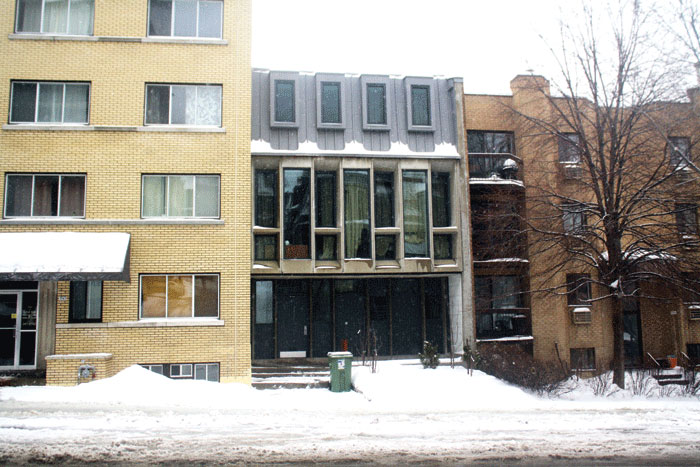Educational Community Living Environment (ECOLE), a sustainability initiative, gained Independent Student Group (ISG) status on Dec. 4 during the Students’ Society of McGill University (SSMU) Legislative Council meeting. Launched in October 2014, ECOLE houses its members in a converted townhouse rented from the university on 3559 University. Its members conduct research on material flow, composting, water harvesting, and more. Research projects include investigating participatory planning in Milton-Parc and Montreal immigrants’ access to healthcare.
As an ISG, ECOLE can now use SSMU resources and services, such as booking large spaces in the SSMU building, for their activities. Selin Jessa, U1 Science and a facilitator of ECOLE, expects that ECOLE’s status as an ISG will better foster the relationship between McGill students and the Milton-Parc community.
“It is really important for us to bring [ECOLE closer] to the McGill student body, because ECOLE is kind of already a link between the Milton-Parc community and McGill,” Jessa said. “It would [also] be easier for us to make our programmes more well-attended.”
SSMU VP Clubs and Services Stefan Fong assisted ECOLE in its application for ISG status. He said the SSMU is eager to support student initiatives of this kind.
“Pioneers of sustainable models on campus are typically students,” Fong said. “These are the things that we want to provide a stable footing [for].”
According to Jessa, ECOLE’s long-term goal is to institutionalize itself within McGill as a research institute for sustainability. Yet as a relatively new project still in its pilot year, ECOLE still sees much uncertainty ahead.
According to David Whiteside, ECOLE coordinator and McGill alumnus, ECOLE is currently searching for alternative means of funding outside of McGill.
Most of ECOLE’s current funding comes from McGill’s Sustainable Project Fund (SPF). It received a sum of $76,600 for the 2014-2015 school year, which covers most of its rent—the ECOLE house is leased from McGill’s Student Housing and Hospitality Services for $94,000 per school year. Each resident pays roughly $500 a month in rent, with the remaining being subsidized by the SPF. Other costs include salaries paid to two staff members and about $5,000 in fees associated with organizing events such as the Cinema ECOLE series, which screens sustainability-related documentaries in the ECOLE house.
Kim McGrath, sustainability officer for the McGill Office of Sustainability and SPF steward, explained that ECOLE’s eligibility for SPF will not be affected by its new ISG status and that ECOLE’s current funding from the SPF will remain unchanged. The SPF grant, however, is non-renewable, and can only support ECOLE until April 2015.
Other sources of funding for ECOLE include $1,000 from the Association of McGill University Research Employees, and $400 from the SSMU Spaces Fund.
“We are looking into corporate and government grants,” Whiteside said. “It is difficult though, because most funders do not want to pay operating costs like rent and staff salaries. The grants are very project and program-based.”
ECOLE coordinators have also tried to contact McGill alumni through University Advancement, which facilitates alumni relationships, in hope of organizing a fundraising from the alumni. According to Whiteside, another option that ECOLE is considering is to impose a student fee levy.
“[A fee levy] is more community-based and allows the project more freedom,” Whiteside said. “It holds the project accountable to its mission, rather than to external funder relationships.”
The feasibility of this option is still under evaluation and a proposal has not yet been made. Presently, there are several ISGs that collect fees from students every semester, such as The McGill Tribune, The McGill Daily, and CKUT.
Looking forward, Jessa stressed the importance of finding future sources of funding for ECOLE.
“If we want ECOLE to be in this shape—a house on campus with people living there and paid staff—that depends on funding,” she said. “Hopefully ECOLE will be the same as before in years to come.”









